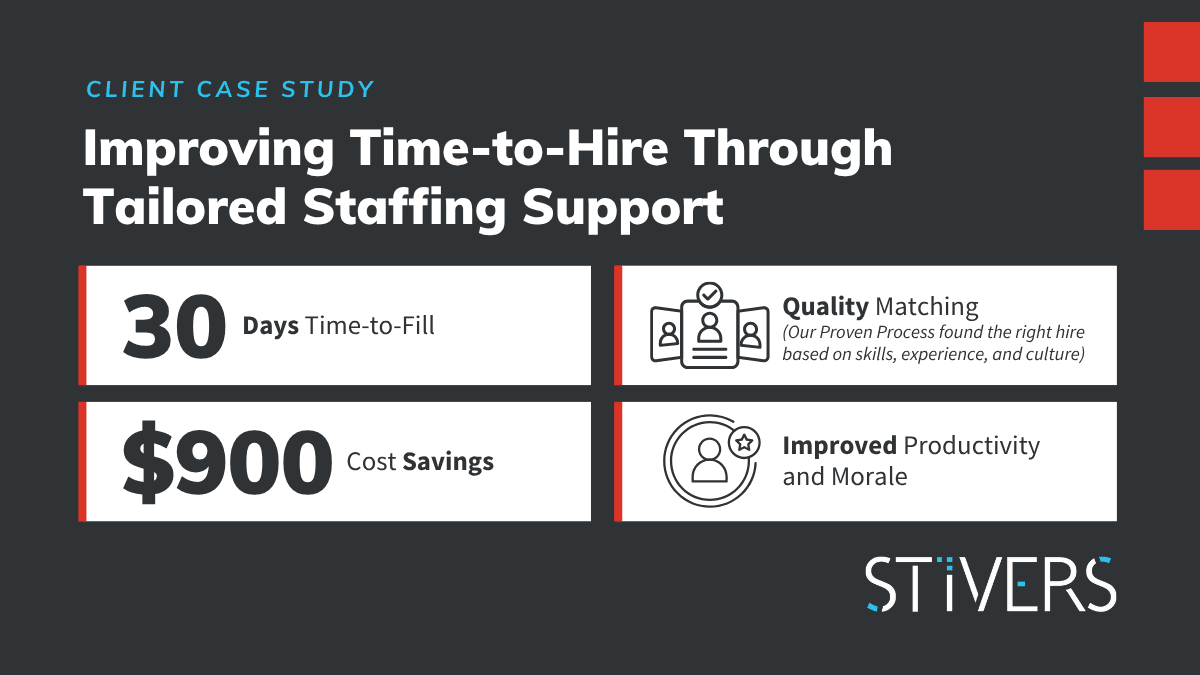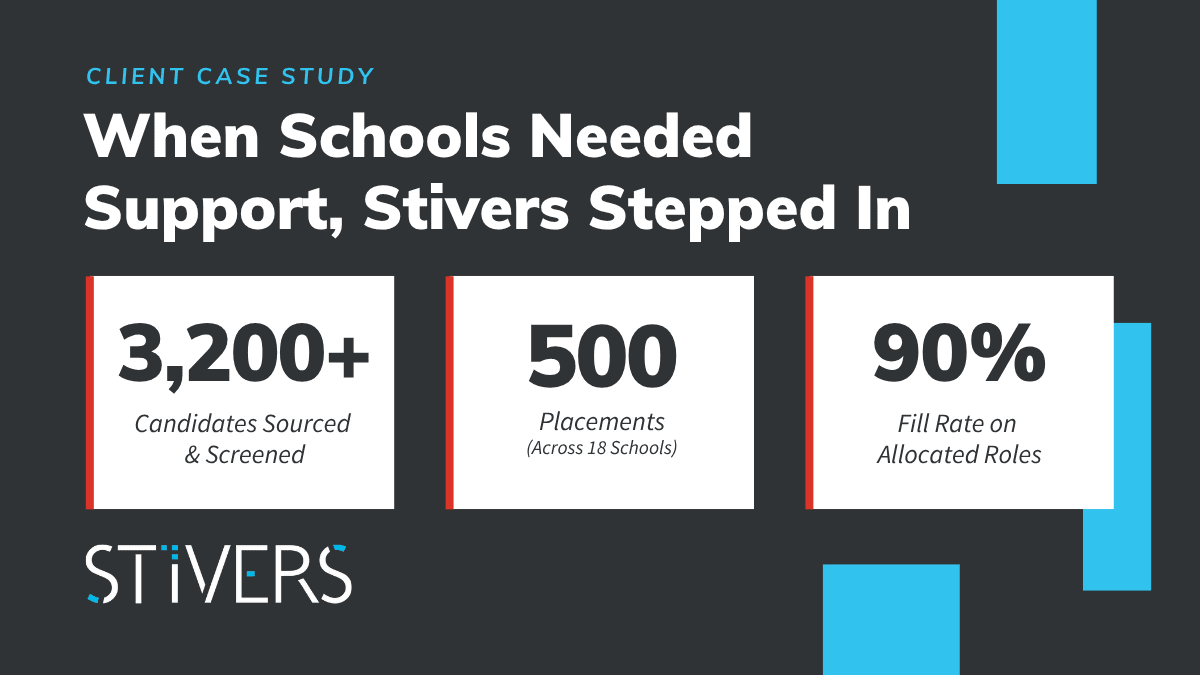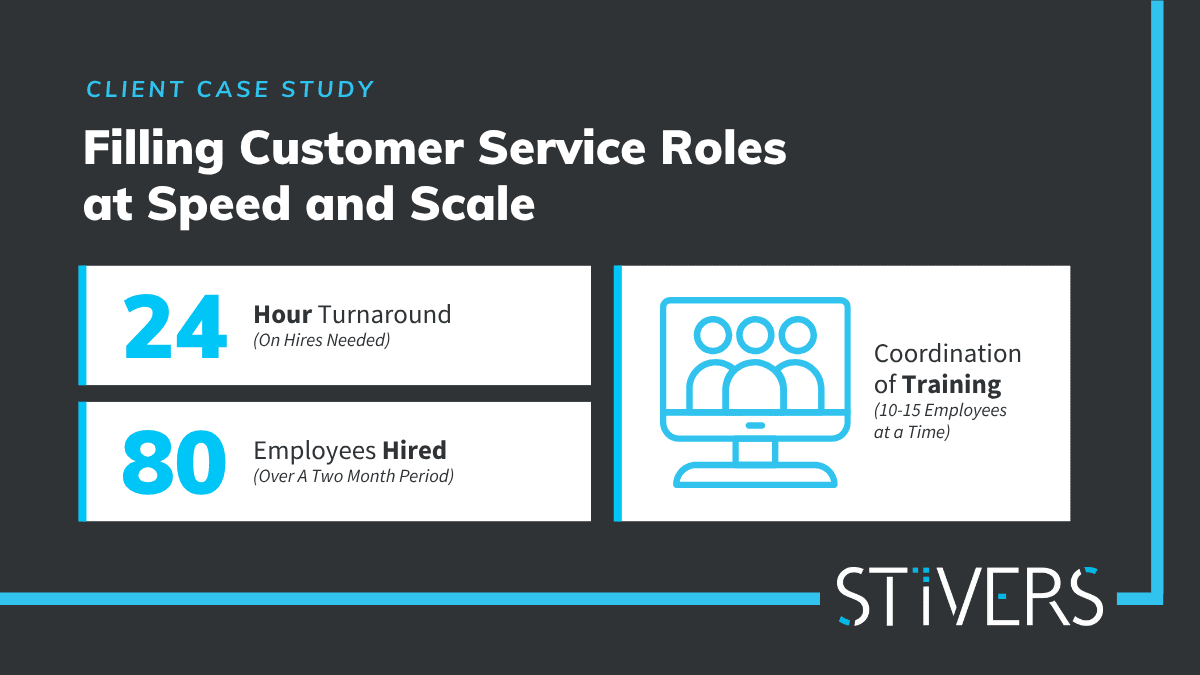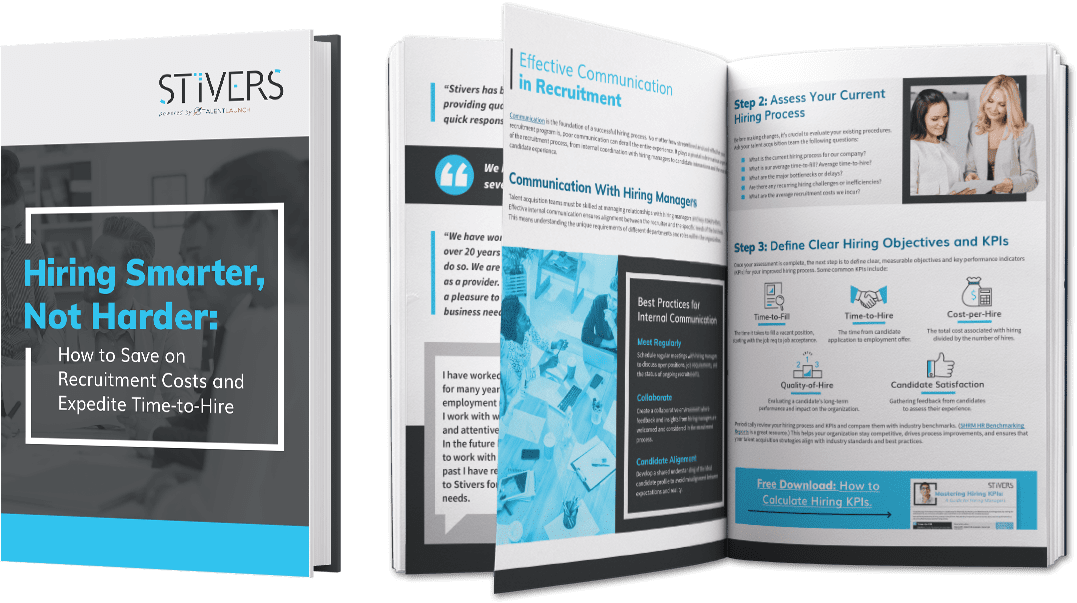When it comes to professional staffing and recruitment, where success often hinges on having the right talent at the right time, the power of communication takes center stage. This is where staffing agencies come into play, specializing in finding the perfect candidates to fill key roles in your organization.
However, the success of your recruiting partnership isn’t just about finding the right people — it’s also about effective communication.
Why Communication Is Important in Hiring (With Examples)
Effective communication with a staffing partner not only impacts your company’s hiring efforts, it also shapes the communication experience throughout the recruitment process.
In this article, we’ll delve into three key areas where a lack of communication creates significant hiring challenges: operational efficiency and productivity, candidate quality, and overall client satisfaction.
We’ll also share actions hiring managers should take to ensure clear and efficient communication for staffing your workforce successfully. Let’s get started.

Example #1: Operational Efficiency and Productivity
When things are not well-communicated between you and your recruiter, it can significantly impact operational efficiency and productivity. This often causes a ripple effect, affecting the entire organization as described below.
Misaligned Expectations: Poor recruitment communication can lead to misunderstandings regarding the qualifications and skills required in candidates. You’ll be presented with candidates who aren’t the right fit, causing hiring delays and inefficiencies.
Project Delays: If your business relies on project-based staffing, time is of the essence. Imagine a scenario where the need for candidates is time sensitive, so you promptly reach out to your staffing provider — but their response time lags.
Delayed communication can result in delayed projects if your staffing partner doesn’t provide suitable candidates in a timely manner. The longer it takes to fill critical roles, the longer your team might be working with understaffed resources. This leads to burnout, decreased morale, and a drop in overall productivity.
Ineffective Problem Resolution: As any experienced hiring manager knows, the recruitment process doesn’t always go as smoothly as planned. Hiring challenges can emerge at various stages, from candidate sourcing to post-hire performance evaluations. It’s how these issues are addressed that often separates successful staffing partnerships from problematic ones.
Effective conflict resolution depends on clear lines of communication between your organization and your recruiter. Inadequate communication can result in unresolved conflicts among employees and create a hostile work environment. This can lead to disruptions in workflow and productivity, decreased job satisfaction and, ultimately, turnover.
Wasted Resources: Inefficient communication can also lead to the misallocation of time and effort in the recruitment process. For example, if the wrong candidate is selected and eventually replaced, it not only wastes time and effort; it also wastes financial resources when candidates are not the right fit for the long-term goals of the project or organization.

Example #2: Candidate Quality
Inadequate communication from your staffing partner can result in missing out on highly qualified talent to fill crucial positions — now and in the future. Additionally, poor communication affects the perceptions, engagement, and suitability of candidates themselves.
Missed Opportunities: In a competitive job market, top talent is often in high demand and hiring managers must move quickly. If your staffing provider does not communicate promptly, you may lose out on exceptional candidates who receive offers from other organizations — or worse, your competitors — while waiting for your response.
Improper Culture Fit: A breakdown in recruitment communication also puts you at risk for hiring an improper culture fit. If a staffing partner doesn’t ask about your company culture or give it much consideration during the recruiting process, what looks great on paper could turn into a morale-busting disaster in the workplace.
Candidate Experience: Poor communication can negatively affect the candidate experience during the recruitment and hiring process. Candidates may become disengaged or frustrated if they experience delays, lack of information, or unresponsiveness.
Negative Reputation: Candidates often evaluate potential employers based on their experiences during the hiring process. Prolonged or ineffective communication can harm your organization’s reputation among potential candidates. Word of mouth and online reviews can deter top talent from considering your organization for future opportunities.

Example #3: Client Satisfaction and Long-term Staffing Partnerships
Not surprisingly, poor communication with a staffing provider can have a profound impact on client satisfaction and the development of long-term recruiting partnerships. Here’s why.
Unmet Expectations: When a staffing provider fails to understand your organization’s needs or fails to communicate effectively about candidate qualifications and availability, it’s frustrating and disappointing. You expect a certain level of service or specific candidate qualities, and when these expectations are not met, your satisfaction declines.
Erosion of Trust: Trust is a cornerstone of long-term staffing partnerships. When tasks are not well-communicated, trust between your organization and the staffing provider can erode. You may start questioning their reliability and commitment, which ultimately makes it challenging to build a lasting professional relationship.
Missed Opportunities for Improvement: Effective communication allows for continuous improvement. Ineffective communication leads to missed opportunities for feedback and collaboration on hiring process enhancements. This can result in stagnation in the quality of service provided.
Diminished Client Experience: As a staffing client, you may feel undervalued or unimportant if your concerns are not addressed promptly, or if you are kept in the dark about recruitment progress. This negative communication experience can lead to a reluctance — even blatant unwillingness — to engage in future partnerships with other staffing providers. Which leads us to our next point…
Devaluation of ALL Professional Staffing Agencies: It’s common to hear that past experiences have led some companies to assume that all staffing agencies are bad communicators. In some cases, there’s even outright refusal to ever work with staffing and recruiting agencies again.

Communication Secrets for Seamless Hiring & Recruitment
As you can see, the power of communication becomes glaringly evident when it comes to navigating hiring challenges. It can make or break the entire process, not to mention your staffing partnership and faith in staffing agencies.
As pioneers in recruiting with a legacy of success, we can help shine a light on communication best practices that result in a positive hiring experience. Here are actions hiring managers can take to guarantee staffing partnership success, and examples of what effective communication with a staffing provider looks like.

How To Improve Recruitment Communication: Actions for Hiring Managers
Designate Contacts: Designate specific individuals from your organization and your staffing provider as dedicated points of contact. This ensures that communication flows smoothly and issues are addressed promptly.
Set the Right Expectations: Define expectations regarding response times and methods (do you prefer a weekly call, email, or text?) reporting frequency, and conflict resolution. Specify clear service level agreements if necessary.
Get Candid About Culture: Have open and candid conversations about your team dynamic, values, and company culture. This communication helps your recruiter find candidates that holistically align with your organization.
Regular Performance Reviews: Conduct regular performance reviews of your staffing providers. Evaluate the quality of candidates they presented; did they truly listen to your needs? Did your recruiter provide efficient and clear communication? How would you rate the communication experience from start to finish? This is especially important when you work with more than one agency to fill roles, as you may start to notice a trend in their overall performance.

Effective Communication in Hiring Examples
Realistic Timelines: Both parties agree on realistic timelines for candidate selection and placement, reducing the chances of unexpected delays.
Transparent Pipeline Updates: Sourcing updates are well-communicated by your staffing partner, and you’re always aware of the candidate pipeline status.
Candidate Feedback Loop: Your recruiter actively seeks your feedback on the candidates they’ve provided and makes adjustments accordingly. Any concerns you have are addressed promptly.
Consistent Check-Ins: Regular meetings have been scheduled with your staffing provider to discuss ongoing and future staffing needs — long after a candidate has been successfully hired.

The Role of Communication in Successful Hiring
Effective communication with your staffing provider is the linchpin of successful hiring and lasting partnership. The power of communication influences every stage of the recruitment process, impacting your company’s operational efficiency, the quality of talent acquisition, and ultimately, your satisfaction as a paying client.
For a seamless staffing collaboration, hiring managers should establish clear expectations, actively engage in feedback, and prioritize professional staffing providers who value communication and long-term relationships.
Take Stivers, for example. Our proven hiring process includes the following:
- Prompt feedback. Good communication starts with listening. We get to know your culture, company, and hiring specifics around the positions you need to fill. By asking questions and using your feedback as our guide, we get to work quickly to find high-quality candidates.
- Quick commitments. We use technology, relationships, and experience to help you find the right fit faster — saving you time and money.
- Shorter interview processes. 80% of our recruiting process is performed behind the scenes. You are only presented with the best candidates, minimizing time and effort on your part.
In business and recruitment, it’s not just about what you know — but also about who you have on your team. Effective communication with a professional services staffing provider like Stivers ensures you have the right talent in place when you need it most, giving you a competitive advantage and significant edge in driving your business forward.
